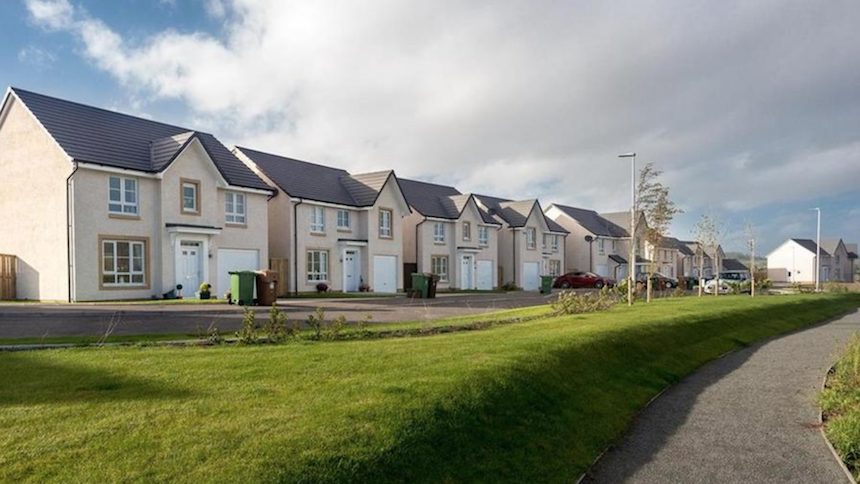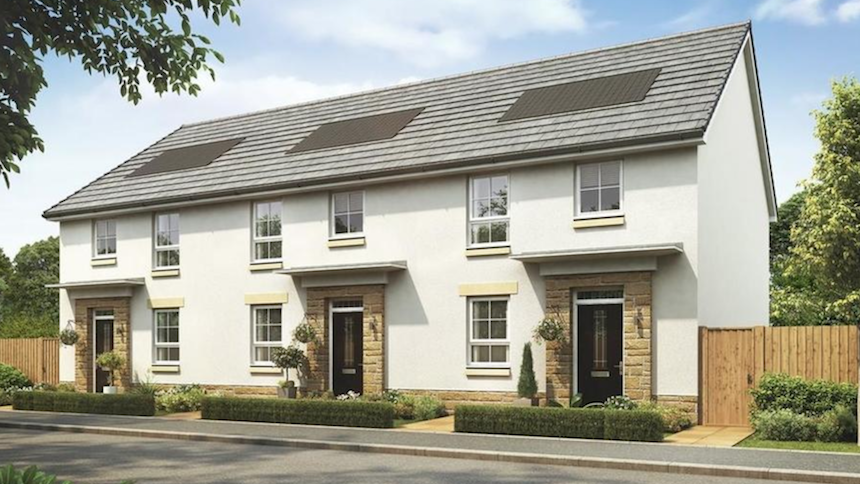Buying a home is one of the most important decisions that you will make.
Getting onto the property ladder can be a complex and stressful process, so here’s your complete step-by-step guide to buying your first home in Scotland.
Work out what you can afford
Your first step should be to work out how much you can afford to spend. Use your current income and expenditure (and that of any person you’re buying with) to work out what monthly repayment you can afford.
You’ll also need to make sure you have the money to pay for the fees associated with buying a home. These typically include:
- Solicitors/conveyancers fees
- Valuation fee
- Fees to your mortgage broker or lender
- Land and Buildings Transaction Tax (LBTT) – bear in mind you won’t pay this tax if you’re a first-time buyer purchasing a property in Scotland for less than £175,000.
Read: Your complete guide to mortgage fees and costs
Check your credit file
When you come to buy a home, your mortgage lender is likely to undertake a credit check. Here, they access your credit file to find out:
- How you have managed your finances
- Whether you have any missed payments, defaults or County Court Judgments (CCJs)
- Whether you are on the electoral roll.
Your credit file helps lenders decide whether they will agree your mortgage, so it’s important that the information on your file is correct. You can obtain a copy of your credit report from one of the three main credit reference agencies in the UK:
- Experian
- Equifax
- TransUnion
Read more: How credit rating sites work
Are there government schemes you can use?
 If you are a first-time buyer, then you have access to a range of government initiatives designed to help Scottish buyers to get onto the property ladder. These include:
If you are a first-time buyer, then you have access to a range of government initiatives designed to help Scottish buyers to get onto the property ladder. These include:
- Help to Buy Scotland – here, the Scottish government takes an equity stake of up to 15% of the total value of your property. You'll generally need a deposit of at least 5%, so you’ll need to secure a repayment mortgage for the remaining 80% of the property value from a Help to Buy lender.
- Low-Cost Initiative for First-Time Buyers (LIFT) – LIFT covers a range of Scottish government schemes designed to help people onto the housing ladder. These initiatives include the New Supply Shared Equity Scheme, the New Supply Shared Equity Developers trial and Developers Scheme, Open Market Shared Equity and Shared Ownership.
View developments currently available under the Help to Buy Scotland scheme
Figures show that over three quarters (76%) of those supported into home ownership by the Help to Buy Scotland and the LIFT (Low-Cost Initiative for First Time Buyers) schemes are young people aged 35 and under, so it’s worth checking whether you’re eligible.
Find out more about the various government schemes to help first-time buyers in Scotland
Get your mortgage sorted
If you need to borrow money to buy your home, then you’ll need to make sure your mortgage is in place. Typically, you can obtain a mortgage:
- Through a mortgage broker or financial adviser
- Directly through a bank or building society
If you’re looking for independent advice and you want to secure the best mortgage possible from a wide choice of lenders, then you’re likely to be better off speaking to a mortgage broker. A broker can also help match you to a lender if your circumstances are out of the ordinary; for example, you have non-traditional income.
However, there are reasons that you might approach your bank or building society directly; particularly if they offer ‘loyalty’ products or you have a close relationship with them.
James Daley, of consumer rights group Fairer Finance, says: “Using a broker tends to make sense, especially if you're taking out a mortgage for the first time.
“Mortgages have become ever more complex over the past few years, with a litany of fees and charges which can obscure the real cost of the deal. Brokers are also invaluable if you are self-employed or have special circumstances.
“But brokers can be expensive…so it's important to find a broker that is reasonably priced,” he adds.
Read: Do I speak to a mortgage broker or my bank if I want a new mortgage?
Whether you use a broker or your bank, there is a wide selection of mortgages to choose from. You’ll get advice on the types of mortgage (repayment, interest only etc.) and the fixed, variable and tracker-rate deals available.
You can also normally obtain an ‘agreement in principle’. This is a quick decision from a bank or building society about your borrowing potential. It lets you know whether a lender will consider you for a mortgage, and how much you can borrow.
Read: Everything you need to know about a ‘mortgage in principle’
Scottish property experts Pacitti Jones say: “Given a choice, sellers are likely to prefer a buyer who is ‘purchase ready’ and so able to minimise the prospects of the sale falling through or hitting obstacles.”
Get your solicitor/conveyancer sorted
When you want to buy a property, in almost all situations you’ll need to employ a solicitor to undertake the legal work that needs to be done.
Approach local firms of solicitors and ask friends and relatives if they can recommend a suitable firm. Before choosing a solicitor, always ask for estimates of their charges for buying a property.
Read: Buying a home? How to choose a conveyancer
Find the right home
 When looking for your first home, it’s important that you carefully consider the requirements you have.
When looking for your first home, it’s important that you carefully consider the requirements you have.
Property search expert Sara Ransom says that first-time buyers must understand that the right property needs ‘to meet many requirements, not just a cool apartment in a hip location that looks exciting right now. Understanding that a property purchase should be a long-term decision is vital.’
She adds: “Buyers should also make sure the property they choose is relevant to the area, for both resale and rental purposes. Life plans can change so dramatically at an early age that it makes sense to buy a property that will perform well in the rental market.”
Read: 7 tips to finding the right home for you
Make an offer
Once you have found the property you want to buy, you’ll need to make an offer. Properties are ordinarily advertised at:
- ‘Fixed price’ – the property could be sold to the first person who offers the advertised price
- ‘Offers around’ – the seller may be prepared to negotiate
- ‘Offers over’ – the figure specified is the minimum the seller would be willing to accept. The seller will normally wait until several people have expressed an interest in making an offer and then announce a closing date. Sealed offers are submitted on that date and the seller chooses the best one, which is often the highest amount.
If the seller accepts your offer, their solicitor will send a qualified acceptance letter to the buyer's solicitor.
Get a valuation on the property
Once your offer is accepted you will need to instruct a survey/valuation of the property. If you’re getting a mortgage, then this will be required by your lender.
A house survey involves a qualified professional inspecting the condition of a property. The surveyor will provide expert commentary on the property, give a current valuation, and identify any significant problems or repairs that are needed.
There are different types of survey. Find out more: Your complete guide to house surveys
Complete
When all the conditions of the offer have been accepted (called ‘concluding the missives’), your solicitor will complete the conveyancing procedures and prepare a number of documents, particularly a ‘disposition’ which will transfer ownership of the property to you.
The contract or missives will specify the date of entry to the property. This is the date on which you will have to pay the seller the purchase price of the property in return for the disposition and the keys to the property.
Your solicitor will make all the arrangements for settling the transaction on the date of entry. This is called ‘completion’ of the purchase.
Find retirement homes developments in Scotland
Find affordable homes developments in Scotland
Find luxury homes developments in Scotland